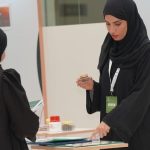In a recent article by Gülden Hennemann, the Head of the Central Coordination Office for Measures against Extremism in the Bavarian prison system, a call to action is made regarding the threat of Islamism in Europe. Hennemann highlights the need to address the issue of Islamism, not only legally and criminally, but also ideologically. She stresses the importance of drawing clear lines with Islamists, particularly in terms of their stance on democratic core values. Hennemann points out that the silence surrounding the topic of Islamism is concerning, as it can be interpreted as either approval or cowardice, both of which are threats to liberal democracies.
The article references recent events, such as a knife attack in Solingen, an arson attack on a synagogue in France, and an offensive by Hezbollah against Israel, which all have in common Islamist-inspired hatred against liberal democratic values and Israel. Hennemann argues that the silence from both politics and civil society on the topic of Islamism is worrisome, especially in the face of increasing far-right extremism. She highlights the fear and pressure faced by experts, authors, and journalists who avoid discussing Islamism due to threats and public backlash, particularly since a terrorist attack by Hamas and Islamist groups last year.
The article delves into the ideological history of Islamism, tracing back decades of Islamist hatred towards Israel and Jews, combined with a rejection of democratic values and liberal lifestyles. The writings and works of key figures such as Sayyid Qutb, Abdullah Azzam, and Yusuf al-Qaradawi are mentioned, who have had a significant impact on spreading Islamist ideology. The recent terrorist attack by Hamas and other Islamist groups is seen as a potential trigger for a new wave of Islamist radicalization in Europe, highlighting the urgent need to address Islamism and its consequences.
Hennemann discusses how Islamist groups in Europe have been building structures, expanding networks, and increasing influence since the 1970s, especially through the Muslim Brotherhood. Despite being shielded by democratic laws, these groups promote anti-democratic, antisemitic, and anti-Western narratives. In the context of the Israel-Palestine conflict, organizations like the PGD and the Samidoun network are mentioned as spreading hatred of Israel and Jews, while receiving public, political, and societal support, particularly from the left spectrum. The article calls attention to the danger of becoming the mouthpiece of Islamists, which not only legitimizes terrorism but also endangers democratic principles.
To combat the rise of European Islamism and Islamist terrorism, the article emphasizes the importance of addressing ideological connections and exposing Islamist narratives. Clear lines must be drawn with Islamists, particularly regarding their stance on democratic core values. Hennemann stresses the need for promoting critical thinking to recognize Islamist propaganda and misinformation, as well as fostering a culture of debate and discussion to openly address the dangers of Islamist ideology to democracies. Silence is not an option, as it would only serve to further the goals of Islamists and their accomplices.
In conclusion, Hennemann’s article sheds light on the pressing issue of Islamism in Europe and the urgent need to address it. By drawing clear lines with Islamists and exposing their ideologies, we can work towards combating extremism and preserving democratic values. It is essential to promote critical thinking and open dialogue to counter Islamist narratives and ideologies that pose a threat to liberal democracies. Silent approval or cowardice in the face of Islamist extremism is not an option – it is crucial to engage in the conversation and take action to protect democratic societies.











